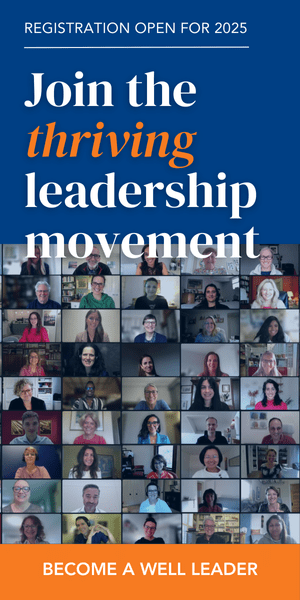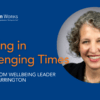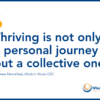Leadership isn’t about pushing harder—it’s about creating conditions where people can truly thrive. In a recent podcast interview with Nicki Sizemore, our CEO Renee Moorefield shared profound insights into what it means to nurture human potential, both within ourselves and our organizations.
The Biology of Human Potential
We’re not just built to survive—we’re biologically hardwired to thrive. This isn’t a luxury; it’s a fundamental human capacity. When we’re dysregulated—anxious, fearful, or overwhelmed—our systems literally shut down. We narrow our perspective, reduce our capacity for communication, and retreat to familiar (often unproductive) habits.
But thriving looks different for everyone. For some, it’s a moment of joy while playing a sport. For others, it’s finding peace by a fireplace or experiencing wonder in nature. The critical insight is that thriving isn’t a switch we turn on and off. It’s a dynamic process of self-knowledge, self-resourcing, and collective support.
Leadership as a Nourishing Practice
True leadership isn’t about achieving despite stress—it’s about creating environments where human potential can flourish. As our CEO Renee Moorefield discovered early in her career, a leader’s primary role is understanding what motivates people, connecting with their stories, and designing systems that support their growth.
Nourishment extends far beyond what’s on our plate. It’s about how we show up—with intention, curiosity, and presence. Whether it’s cooking, working, or interacting with others, nourishment is about honoring the life energy within ourselves and around us. This means choosing abundance over scarcity, connection over competition.
Our Interconnected Journey
We’re more interconnected than ever. What happens in one part of the world ripples across communities. By cultivating our inner landscape, we contribute to a more resilient, caring world. Thriving isn’t about perfection. It’s about pausing to notice small joys, being curious instead of critical, and recognizing our innate capacity for growth.
Our most powerful leadership tool is our ability to remain open, compassionate, and committed to continuous learning—not just for ourselves, but for those we work with and serve.
Listen to the Full Conversation:
- Nicki Sizemore Substack Newsletter
- Spotify or Apple Podcasts
- YouTube






